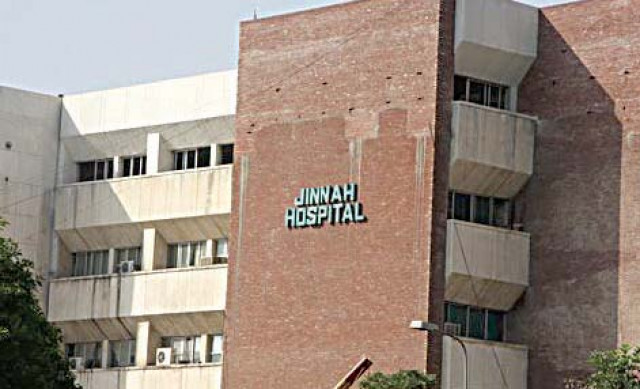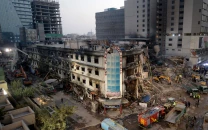Remote surgery nears reality at JPMC
To turn science fiction into surgical fact — but high-speed internet remains key challenge

Jinnah Postgraduate Medical Centre is on the verge of a major medical breakthrough: introducing Pakistan's first remote surgery system. Integrating artificial intelligence with high-speed satellite internet, the hospital aims to enable surgeons located miles away, even abroad, to perform operations on patients in remote regions of the country.
To make this possible, work is already underway to upgrade the hospital's internet infrastructure, ensuring the stable, high-speed connectivity required for real-time robotic surgery. Once operational, the system will place Jinnah Hospital among the world's most advanced medical centres using fully digitised surgical technology.
Speaking to The Express Tribune, Executive Director Professor Shahid Rasool said the hospital is planning its first telesurgery by the end of this year, pending successful installation of a satellite internet system. He noted that the lack of reliable high-speed connectivity has been the main obstacle to remote surgery in Pakistan. With a stable connection, he said, surgeons could safely and effectively operate from hundreds or even thousands of kilometres away.
The concept of remote surgery, or telesurgery, was initially developed by NASA to operate on astronauts in space. It first became reality on Earth in 2001, when a surgeon in New York performed a successful operation on a patient in Strasbourg, France, using robotic arms connected through high-speed internet. A local surgeon was present to assist on-site.
The same model is now being adapted for Pakistan, where access to specialist care in rural areas is severely limited.
Remote surgery would allow expert surgeons in Karachi or abroad to treat patients in smaller cities or hard-to-reach regions, provided a trained surgical technician is available on location to manage the robotic equipment. This eliminates the need for patients to travel to major cities and enables hospitals in underserved areas to offer advanced procedures.
Currently, robotic surgical systems are expensive — costing between $two million to $2.5 million — but their prices are gradually declining.
Despite the cost, the advantages are significant — reduced blood loss, minimal incisions, faster recovery times, and better outcomes for complex procedures such as those involving rectal cancer or bladder tumors.
Robotic surgery has already been practiced in Sindh for two years. Facilities exist at Jinnah Hospital, Civil Hospital, Dow University, SIUT, and Gambat Hospital, with new installations planned at LUMHS and upcoming expansions to Sukkur and Larkana. With improved connectivity, surgeons in Karachi could soon perform procedures remotely in those cities.



















COMMENTS
Comments are moderated and generally will be posted if they are on-topic and not abusive.
For more information, please see our Comments FAQ